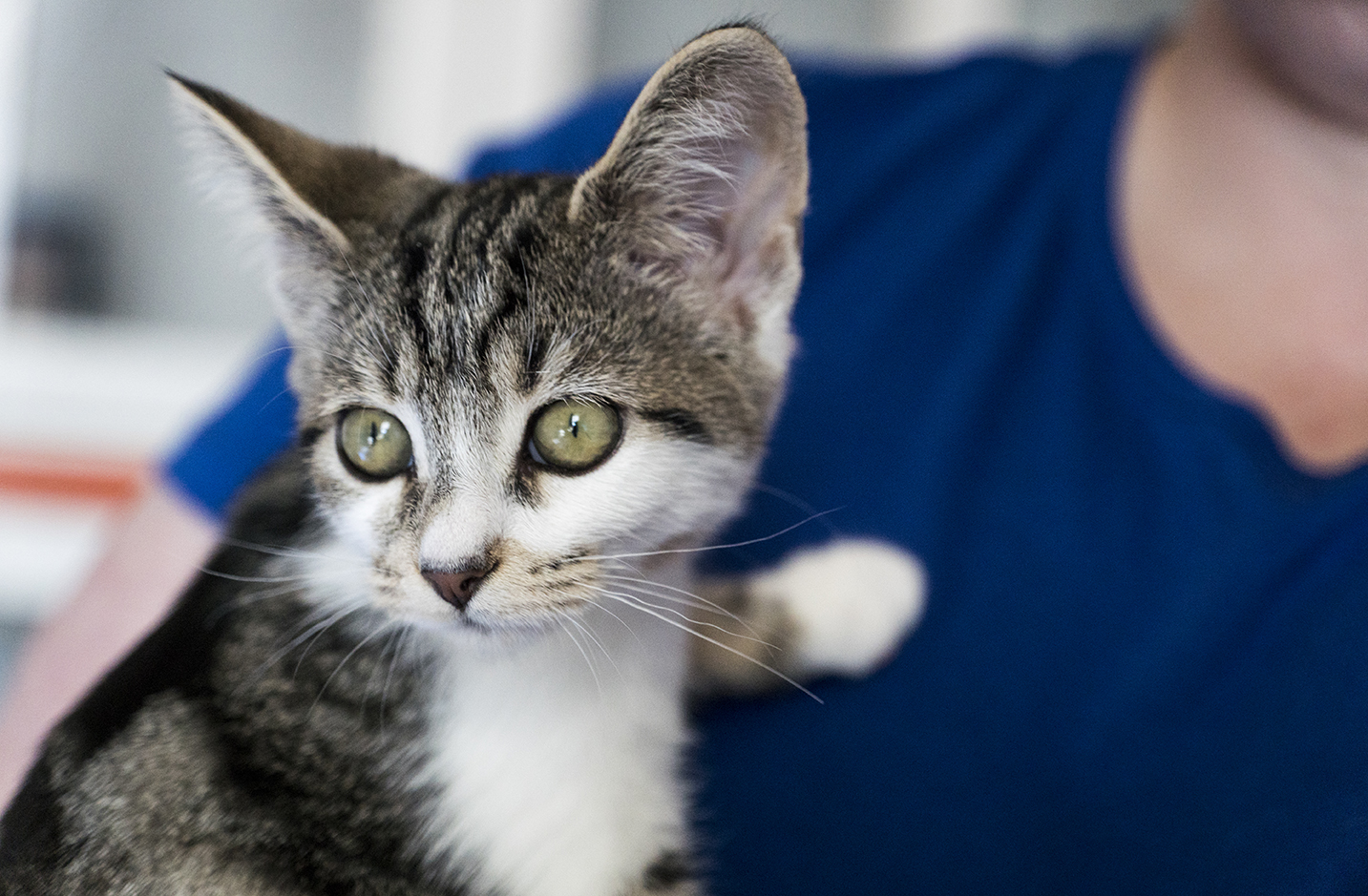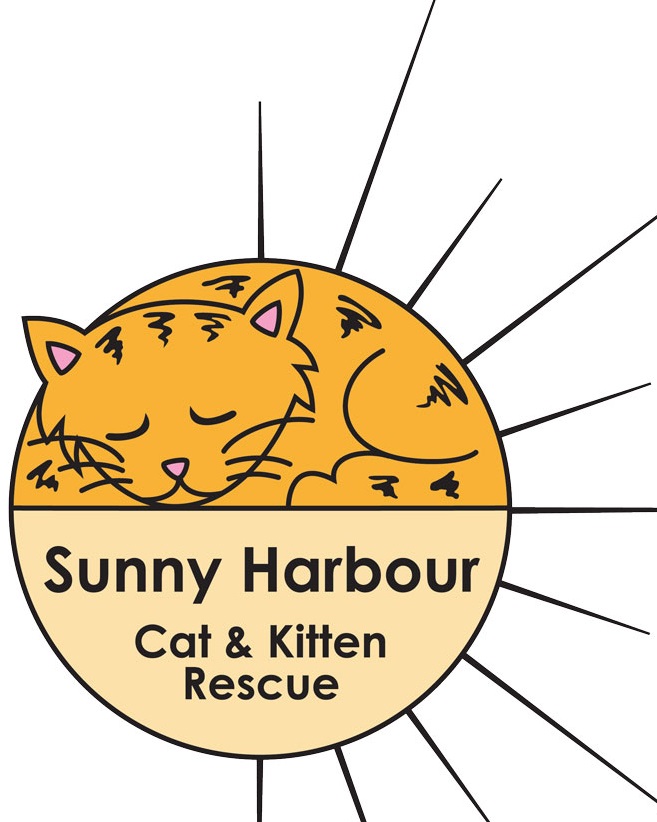Emergency Kitten Hand-Rearing Guide
Emergency Kitten Hand Rearing Guide
Important Note: Under no circumstances will Sunny Harbour Cat Rescue EVER recommend the use of surrogate mothers where the source of the cats is not known. i.e. placing stray kittens on a mum of another litter.
Cats and kittens can carry all kinds of parasite infections as well as viral and infectious diseases that you CANNOT see, but WILL prove fatal to all if spread.
Emergency Feeding Guidelines
In our work at Sunny Harbour Cat Rescue over the last 10 years we have never yet had a mother cat birth her young without some form of complication.
This can be anything from a breech kitten to a deformed kitten blocking the birth canal or even a very young mum (under 18 months) attacking their young as they don’t understand what these little screaming beings are that are causing them such pain.
With each birth we see and the unnecessary pain each mother cat goes through, it only instills our resolve that this is completely needless and serves no positive purpose whatsoever in today’s world. However. That is a topic for another day.
With the high number of complications from over breeding and breeding too young these days mother rejection and kitten deformities are becoming very common place. We receive numerous calls throughout the year for help in these situations and in some cases people have found bad advice online about what to give the young as a ‘stop gap’ until they can either get them into our care or get the correct formula to feed, with fatal results.
Our recommendation will always be to get the kittens to a suitably experienced person or rescue for specialised care. However if this isn’t possible, you need to know what to do and so we have created this guide to help you get started with the basics.
If you are in East Central Scotland: Edinburgh, Fife, Lothian, Perth, Tayside then call Sunny Harbour Cat Rescue on our emergency number: 07783639898 which is available 24hrs a day (though please remember we are sleeping after midnight, so this advice should see you through the night, thank you!)

Important Things to Know About Hand Rearing Kittens
- Should you find that your cats kittens aren’t feeding well try to massage mum cats teats to encourage the milk to flow. Gently place the kittens near the teats and help them latch on if needed.
- It is perfectly normal for a mother cat not to allow the kittens to suckle until she has delivered all of the litter so don’t be worried if they don’t feed right away. With some mothers kittens are born within half an hour of each other and sometimes, they will appear finished but still deliver another 2 kittens a couple of hours later.
- If you are unsure if the teats are flowing with Colostrum or Milk you can check by gently massaging around the teat. Using your thumb and fore finger very gently squeeze in a downwards motion to ‘milk’ the teat. You should find that you will either get a creamy discharge (Colostrum) or a white translucent fluid (milk). If you get neither then that teat may not yet be producing milk so try the other teats.
- If your mother cats milk is drying up early, or she fails to produce milk, or rejects the litter or part thereof, you will find that you now have to either find a local hand rearing specialist through a local rescue, or hand rear them yourself.
What You Will Need
If you find yourself in this situation late at night and with no supplies you will need an emergency kit to care and feed the kittens. For this you will need:
- 1 tin of Evaporated Milk
- a syringe, dropper or straw,
- Water.
- Warm bed & heat pad (never a hot water bottle)
- Old hand towels.
Yes. That is ALL you need and it is sufficient that it will get you through the night until you can get hold of some colustrum and milk in the morning.
Mix the Evaporated Milk 50/50 with the water, stir and warm gently just enough to take the chill off the solution.
You will need less than 5ml per kitten per feed for a day or so old kitten, so I would recommend you make up the milk solution in small batches to save wasting any.
The kittens will need fed every 1 to 3 hours day and night depending on the size of feeds and choice of formula you make. Our recommended replacement milk formula is Royal Canin Babycat Milk Replacement. This pack comes with everything you need with 3 packs of powder formula, bottle, teats and measuring scoop with instructions.
DO NOT UNDER ANY CIRCUMSTANCES add Honey, Sugar or Cream to this mixture EVER!
Use either the syringe, dropper or straw to slowly drip drops of milk into the kittens mouth. If you haven’t done this before always drop the milk at the front of the mouth, never at the back. Otherwise you will risk the milk going down their airway and into their lungs causing them to aspirate leading to infection, or in the case of putting too much milk in, you will drown them.
This can easily go wrong and hence we would always recommend that you seek professional help from an experienced rescue in hand rearing for advice.
You may find after feeding the kittens have hard round tummies. That’s trapped air and you need to get that out as you would with a new born baby.
Massage the kitten all over including around the body area. Very gently pat if massaging isn’t working on its own until you hear or feel the air clear.
You should NEVER feed a kitten while it’s laid on it’s back as you put it at great risk of choking. Always feed a kitten in a standing position, or standing on back legs with you supporting the front legs at approximately a 45 degree angle.
This is the natural feeding position of a kitten with its mother. The advantage with the Royal Canin feeding bottles and teats is that they are multi flow meaning that you can choose from a fast, moderate or slow flow of milk and choose which the kitten prefers to feed from.
Rescues versed in hand rearing are always a better source of good practical advice than vets, and Sunny Harbour are always happy to advise no matter where in the country you are located.
Now. No offence to vets but they do not have the same knowledge as experienced rescues when it comes to antenatal care of orphan kittens.
They need your help to toilet too!
As well as feeding the kittens you will also have to help them go to the toilet. Newborns kittens up to approximately 3 – 4 weeks old don’t have the ability to urinate or defecate without stimulation.
This is where your towel comes in. Not warm cotton wool, but a towel. Think about it, mum’s tongue is like sand paper not fluffy cotton wool balls!
Hold the kitten firmly underneath and with the other hand GENTLY rub around the genital area for a few seconds until you feel urine coming through. Female kittens normally have to be stimulated further back towards their anus while male kittens often prefer around their penis area or just below the genitals / lower belly area.
If you have rubbed for around 20 to 30 seconds and there is no urine then chances are they have self stimulated on their bedding but always check just to make sure that what is going in is coming out again. Also check the bedding to make sure urine is passing.
If you need to clean up the kittens either use Huggies Pure baby wipes (never-scented) or get a small bowl of warm (body temperature) water and a towel. Dip the towel into the warm water, squeeze out loosely and then brush the towel across the area to be cleaned on the kitten.
Don’t keep rubbing!
If you do you will rub them raw, making it painful for them to urinate and causing an infection.
We always advise you check for urine prior to feeding or else they may not feed. It’s also worth checking afterwards too.
So, I’ve touched on the very basics of hand rearing and I’m sure you can see there is a lot to this hand rearing business. If you are going to take this on you must do it properly or else you risk the very lives you are trying to save.
It is a massive undertaking and huge responsibility, very hard work and fully expect little to no sleep at all for the first few weeks.
Good luck and remember we are just a phone call away.
This is merely a quick emergency guide for healthy new-borns and is in no way a comprehensive list of all eventualities you may have hand rearing kittens. Should you have any questions or need help please call our emergency line immediately on 07783 639 898.
